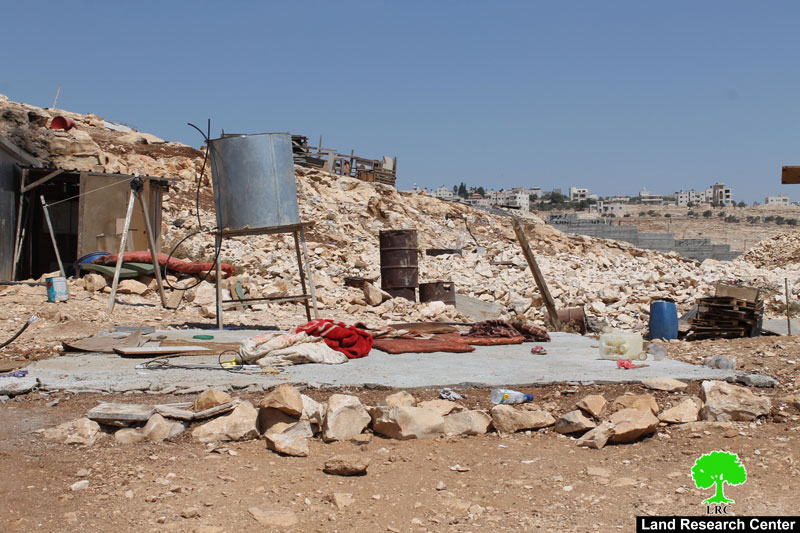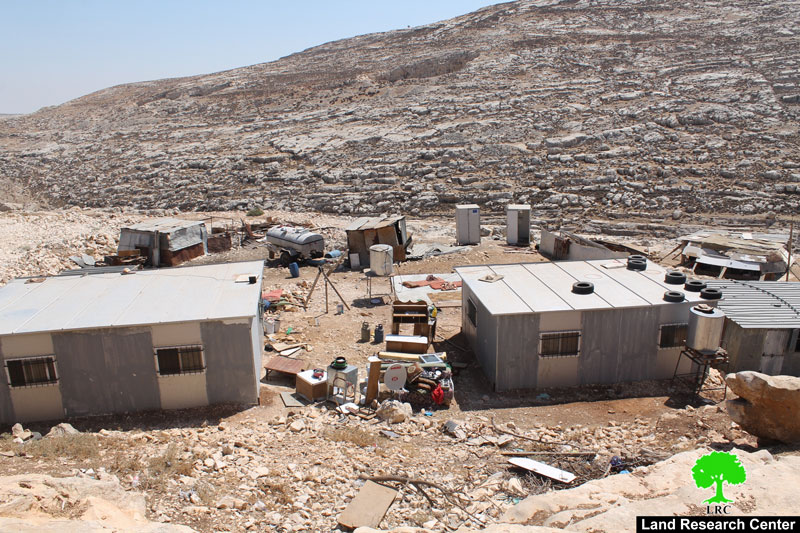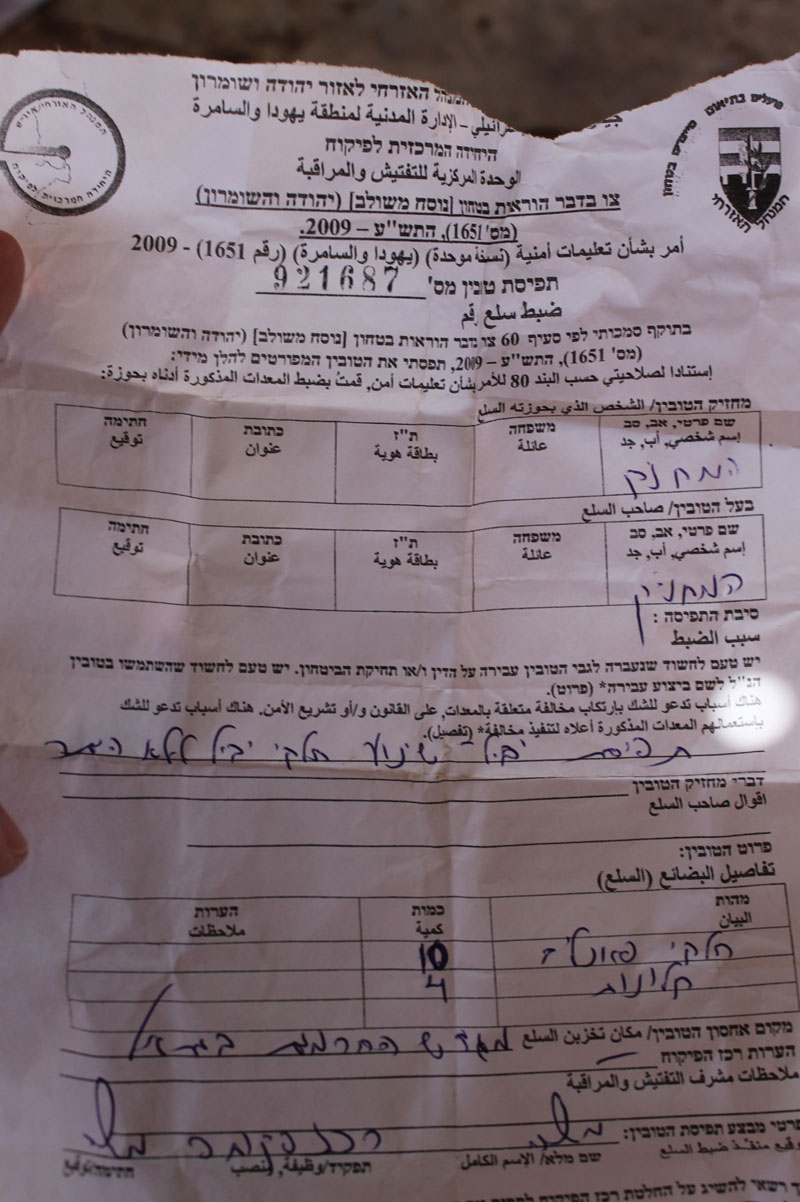2017-08-31
The Israeli Occupation Forces dismantle and confiscate a residence in the Jerusalem town of Hizma
On August 31,2017 the Israeli Occupation Forces raided the Bedouin community of Tublas that is founded in Hizma town in Jerusalem and confiscated a residence of a Bedouin family after dismantling it.
Reportedly, the house is a metal slaps barrack of 40m2 that the family got from the EU. The residence belongs to citizen Mohammad Al-Zeidat, who lives there with his wife and three children.
The wife of the house owner said that they have been living in the house since 2014. It was after they got it from the EU. She also said that the community consists of 13 families, of which three had to leave after being threatened of "removal", taking into account that the area overlooks Pisgat Ze'ev colony. Today, the community populates only 60 people, half of whom are children.
She added
" Three days ago, an officer from Israel District of Coordination Office arrived at the location and took photos of the community from all sides before withdrawing without answering any questions.
Next day, tens of the occupation soldiers and special forces accompanied by a winch arrived at the location, surrounded it and dismantled the house after emptying parts of its interior. Minutes later, I was given a confiscation notice".



the floor on which the barrack was established

the minutes of confiscation
Noteworthy, the family has a three year kid with cerebral palsy. Reem requires special care; solar panels were fixed to the roof to provide her with energy necessary for the oxygen machine she is hooked to.
Land Research Center LRC sees that demolitions contradict with all of the International conventions and Humanitarian laws including:
- Article 17 of the (1948) Universal Declaration of Human Rights stating: “Everyone has the right to own property alone as well as in association with others. No one shall be arbitrarily deprived of his property.”
- Section ‹G› of article 23 of the (1907) The Hague Conventions asserting: “In addition to the prohibitions provided by special Conventions, it is especially forbidden to destroy or seize the enemy's property, unless such destruction or seizure be imperatively demanded by the necessities of war.”
- Article 53 of the Geneva Fourth Convention (1948) declaring: “Any destruction by the Occupying Power of real or personal property belonging individually or collectively to private persons, or to the State, or to other public authorities, or to social or cooperative organizations, is prohibited, except where such destruction is rendered absolutely necessary by military operations.”
- Section 1, Article 11 of the International Covenant on Economic, Social and Cultural Rights (1966): “The States Parties to the present Covenant recognize the right of everyone to an adequate standard of living for himself and his family, including adequate food, clothing and housing, and to the continuous improvement of living conditions. The States Parties will take appropriate steps to ensure the realization of this right, recognizing to this effect the essential importance of international co-operation based on free consent."
This case study is part of Kan'aan Project

